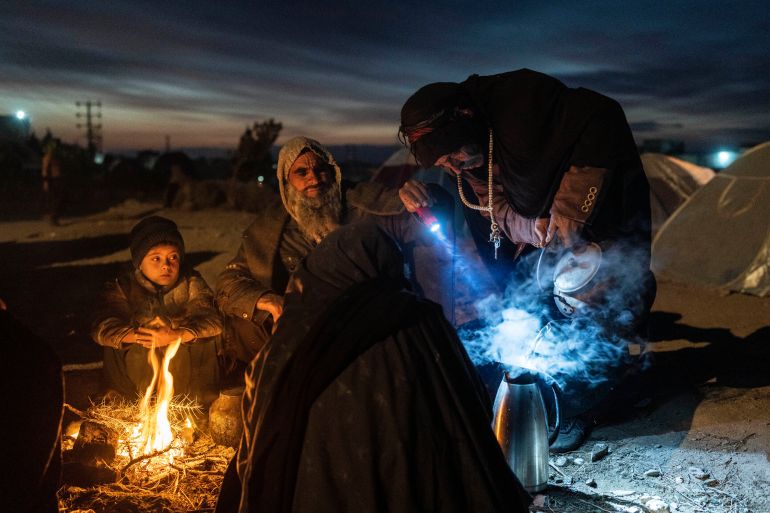It has been more than 24 hours since Farahanaz, whose name has been changed to protect her identity, has had a “proper meal”.
“As adults, we can manage, but when the kids ask for food, I don’t know what to tell them,” the 24-year-old former radio presenter from northern Afghanistan told Al Jazeera.
When the family are able to eat, it’s often only bread, and sometimes with vegetables, accompanied by watered-down green tea. Sometimes there is sugar to put in the tea, which is a rare luxury these days, as they struggle to survive after Farahanaz, the sole breadwinner for the family of eight – lost her job after the Taliban takeover of Afghanistan last August.
“My younger sister was recovering from surgery when the Taliban took control and lives were overturned. She has lost so much weight, and falls sick when there isn’t enough to eat,” Farhanaz said. But the family cannot afford medical assistance, either.
Farhanaz’s family is among the 23 million Afghans facing starvation, in what has become a hunger crisis of “unparalleled proportions”, according to Dr Ramiz Alakbarov, deputy special representative of UN Secretary-General Antonio Guterres.
“In Afghanistan, a staggering 95 percent of the population is not eating enough food … It is a figure so high that it is almost inconceivable. Yet, devastatingly, it is the harsh reality,” Alakbarov said in a statement issued in early March, adding that almost 100 percent of women-led households were experiencing hunger.
Alakbarov’s disturbing claim is reflected in Farhanaz’s situation.
Read full story on Al Jazeera
